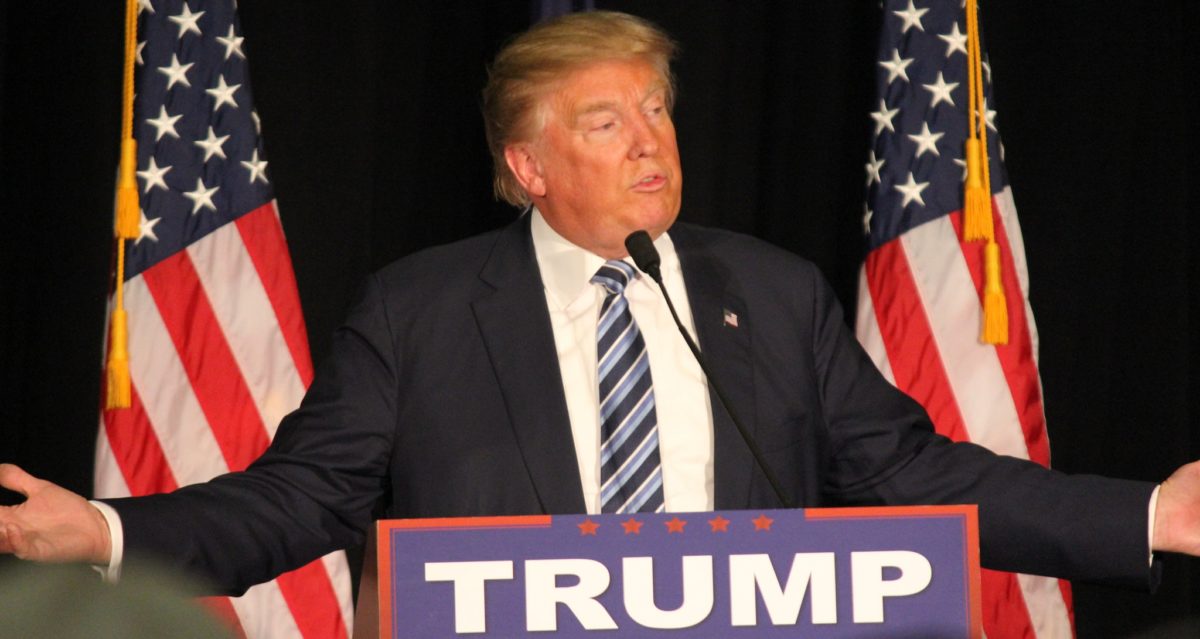Last night’s announcement by President Trump of a delay in the imposition of escalated tariffs on Chinese goods will offer a ray of light to the solar industry.
The president announced via a couple of tweets – how else? – that the planned escalation of tariffs applied to $200 billion worth of Chinese imports from 10% to 25% on Friday would be delayed after “substantial progress” was made in trade talks between the two nations.
I am pleased to report that the U.S. has made substantial progress in our trade talks with China on important structural issues including intellectual property protection, technology transfer, agriculture, services, currency, and many other issues. As a result of these very……
— Donald J. Trump (@realDonaldTrump) February 24, 2019
….productive talks, I will be delaying the U.S. increase in tariffs now scheduled for March 1. Assuming both sides make additional progress, we will be planning a Summit for President Xi and myself, at Mar-a-Lago, to conclude an agreement. A very good weekend for U.S. & China!
— Donald J. Trump (@realDonaldTrump) February 24, 2019
Those retaliatory measures for what Trump sees as currency manipulation, the unfair application of state subsidies and intellectual property theft by the Chinese authorities included tariffs on solar cells and modules as well as inverters, AC modules and some batteries. Among those products, the most serious consequences were expected to be felt by the inverter market.
With Trump announcing plans to meet Chinese counterpart Xi Jinping in Florida to sign an agreement ending the trade stand-off if sufficient further progress is made in negotiations, a thawing in trade relations could bode well for Chinese inverter makers.
Hope for inverters?
The tariffs on inverters and other products started at 10%, and were originally scheduled to increase to 25% on January 1. The White House subsequently postponed implementation of the 25% rate until Friday, pending the outcome of negotiations between the two nations.
The brevity inherent in the president’s social media vehicle of choice means only a broad brush announcement on trade tariffs was covered by last night’s update, so it is not immediately clear if inverters would be helped by the apparent success in talks.
Trade talks between the countries had been extended into the weekend after a breakthrough on currency manipulation was announced last week. With state subsidies another bone of contention, the Trump administration is seeking rigorous enforcement measures related to any agreement signed by Xi at a time when the readiness of the Chinese authorities to come to the aid of debt-saddled solar developer Panda Green starkly illustrates the U.S. president’s point. The recent program announced by Beijing to encourage solar projects to be developed without central subsidies called on state lenders and local authorities to do their utmost to incentivize such developments. Arguing a special case could be made because of the overriding need to reduce carbon emissions is likely to cut no ice in a White House which has firmly nailed its colors to the fossil fuel mast.
U.K. newspaper The Guardian this morning reported news of progress in talks between the two administrations had lifted Asian shares in today’s trading, with the Shanghai exchange seeing a 3.5% rise.
The announcement also comes at a good time for the U.S. solar industry, as the global Section 201 tariff slapped on cells and modules was reduced this month from 30% to 25%, as stipulated upon its introduction in February 2018.
This article was amended on 25/02/19 to remove any reference to steel and aluminum among the imports affected by the potential breakthrough in trade talks.
This content is protected by copyright and may not be reused. If you want to cooperate with us and would like to reuse some of our content, please contact: editors@pv-magazine.com.




By submitting this form you agree to pv magazine using your data for the purposes of publishing your comment.
Your personal data will only be disclosed or otherwise transmitted to third parties for the purposes of spam filtering or if this is necessary for technical maintenance of the website. Any other transfer to third parties will not take place unless this is justified on the basis of applicable data protection regulations or if pv magazine is legally obliged to do so.
You may revoke this consent at any time with effect for the future, in which case your personal data will be deleted immediately. Otherwise, your data will be deleted if pv magazine has processed your request or the purpose of data storage is fulfilled.
Further information on data privacy can be found in our Data Protection Policy.